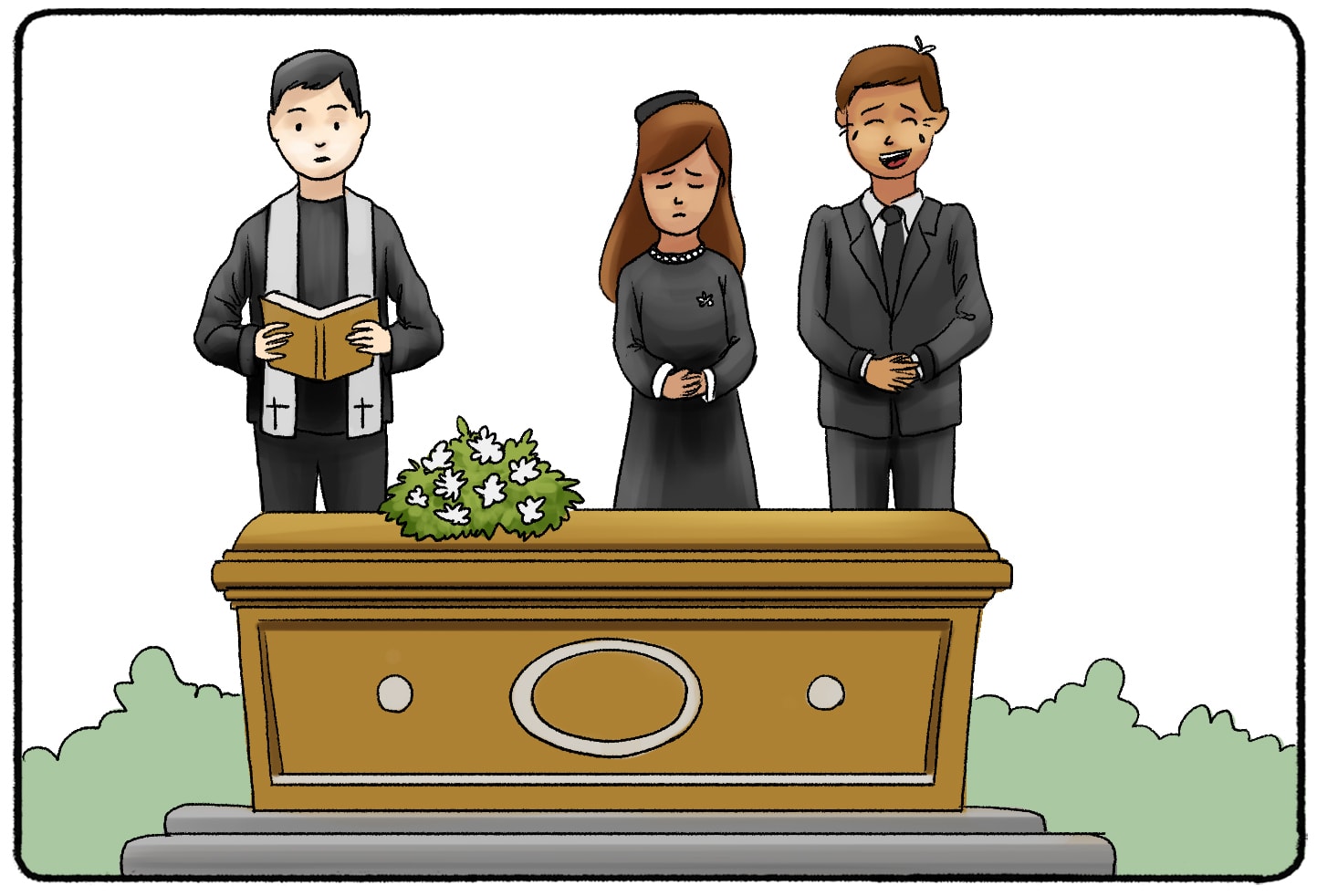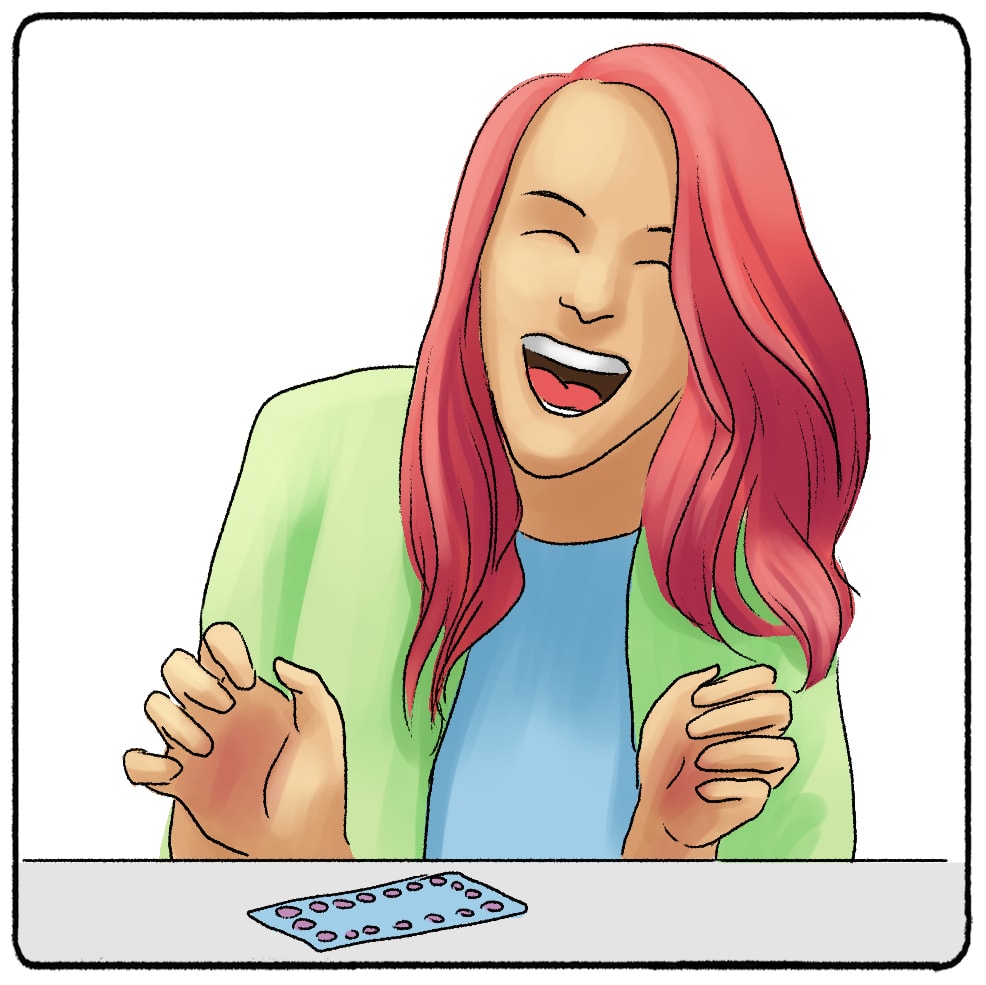Have you ever found yourself laughing in an inappropriate situation? I’m not talking about a tasteless joke. I mean a really inappropriate situation. Maybe you have a phone interview with a big corporate company and you just can’t stop laughing, even if no one has said anything funny. Maybe you hear some bad news and you can’t help to crack a smile. You might even start nervously laughing at a funeral or a moment of silence.
If you haven’t experienced this, you probably know someone who has. Of course, they’re probably not going to tell you upfront that they’ve laughed at a funeral.
This can be extremely embarrassing. No one wants to appear as though they are making light of a serious or tragic situation. But this occurs more often than you might think. Sometimes, this is a sign of a serious condition that should be addressed immediately.
What is Labile Affect?
Labile Affect is the act of inappropriate laughter due to a nervous system disorder. Some patients laugh or cry uncontrollably and aren't able to stop without therapy or medication. It is one of many affects, or signs to how someone is feeling inside.
When we smile, cross our arms, or clench our jaw, it is often a reflection of our mood or internal feelings. Body language, tone, and nonverbal communication all reveal more than our words.
Psychologists and medical professionals are currently studying affect, and how it may change at different rates. Dramatic shifts in mood often come with dramatic shifts in outward expression. These dramatic expressions may or may not reflect a person’s true feelings. When this happens, psychologists may label it as Labile Affect, or Emotional Lability. Other names for this event include Inappropriate Affect or Pseudobulbar Affect, but I’ll explain that fancy name in a bit.
Labile Affect may refer specifically to the rapid change in someone’s mood or how they display that mood. Other forms of Inappropriate Affect include “Shallow Affect” (having no emotion or expression, even in dramatic situations) or “Blunted Affect” (showing very little emotion while recalling or experiencing a dramatic situation.)
One of the most famous examples of Labile Affect is the Joker in the 2019 movie. Examples of Labile Affect behavior include:
- Laughing uncontrollably at a somber occasion
- Crying uncontrollably for no reason at all (including seasonal allergies!)
- Showing absolutely no signs of emotion after hearing dramatic news
These episodes are typically brief, lasting only a few minutes.
What Causes Labile Affect?
If you see someone laughing at a funeral, you might think to yourself, “There is something wrong with them.” But that’s not always true. While Labile Affect may be a sign of a larger mental disorder, it could be a sign of hormonal imbalance or simply stress.

Neurological Disorder
Labile Affect may be caused by brain damage or a neurological disorder. That’s why many medical professionals refer to it as Pseudobulbar Affect. This is often a symptom of a neurological disease. In these cases, the frontal lobe is having a hard time communicating with the brain stem and other areas that control your reflexes. Pseudobulbar Affect may be present in patients with the following disorders:
- ALS
- Parkinson’s
- MS
- Dementia
- Brain tumors
A stroke or traumatic brain injury (TBI) may also result in Pseudobulbar Affect.
Psychotic Disorder
The cause for Labile Affect may be darker than a disconnect between two areas of the brain. People with certain psychotic disorders may experience Labile Affect due to hallucination or delusions. They feel emotions inside, but display them inappropriately based on very false assumptions.
People with psychotic disorders may experience a range of inappropriate affects, including the ones mentioned earlier. The most common psychotic disorders associated with Labile Affect include:
- Schizophrenia
- Schizoid personality disorder or Schizoaffective disorder
- Post-traumatic stress disorder (PTSD)
- Psychopathy
- Borderline personality disorder (BPD)
- Bipolar disorder
- Histrionic personality disorder
Other Triggers or Conditions
If you’ve inappropriately giggled while you were nervous, it doesn’t mean you have a brain tumor or schizophrenia. You may just be stressed.
Medical professionals have linked Labile Affect to a long list of other causes, including:
- Overstimulation
- Anxiety
- Excessive tiredness
- Generally strong emotions

This isn’t an exclusive list. Children with ADHD, for example, have been recorded as displaying Labile Affect. Women using a new birth control may find themselves displaying Inappropriate Affect due to the change in hormones. Or, you might just have a bad habit of smiling when you’re uncomfortable. The causes for Labile Affect, especially if they do not occur frequently, may vary and aren’t always “serious.”
Can You Treat Labile Affect?
It is possible to be diagnosed with emotional lability. This diagnosis can lead to a prescription that may decrease outbursts. Medications commonly prescribed to people experiencing labile affect include antidepressants and antipsychotics.
But you don’t need to take medication to reduce inappropriate outbursts. Sometimes, inappropriate laughter may be a way to self-soothe or regulate your emotions. It doesn’t mean something is wrong with you, but it could be a sign to pay close attention to your mental health and emotional stability. Talk therapy could be a great solution for you. The therapist can walk you through what you are experiencing before these outbursts, and what can be done to regulate your emotions in similar situations. Mindfulness and awareness could be the key to reducing experiences that put you in embarrassing situations.

Is there something wrong with you if you giggle during a serious conversation? Not necessarily. But pay attention to how often you experience these outbursts and what triggers them. If you often display uncontrollable emotions without a trigger, it might be time to reach out to a medical professional. They can help you determine what is going on and what sort of treatment can help you avoid the embarrassment of “reacting the wrong way.”



